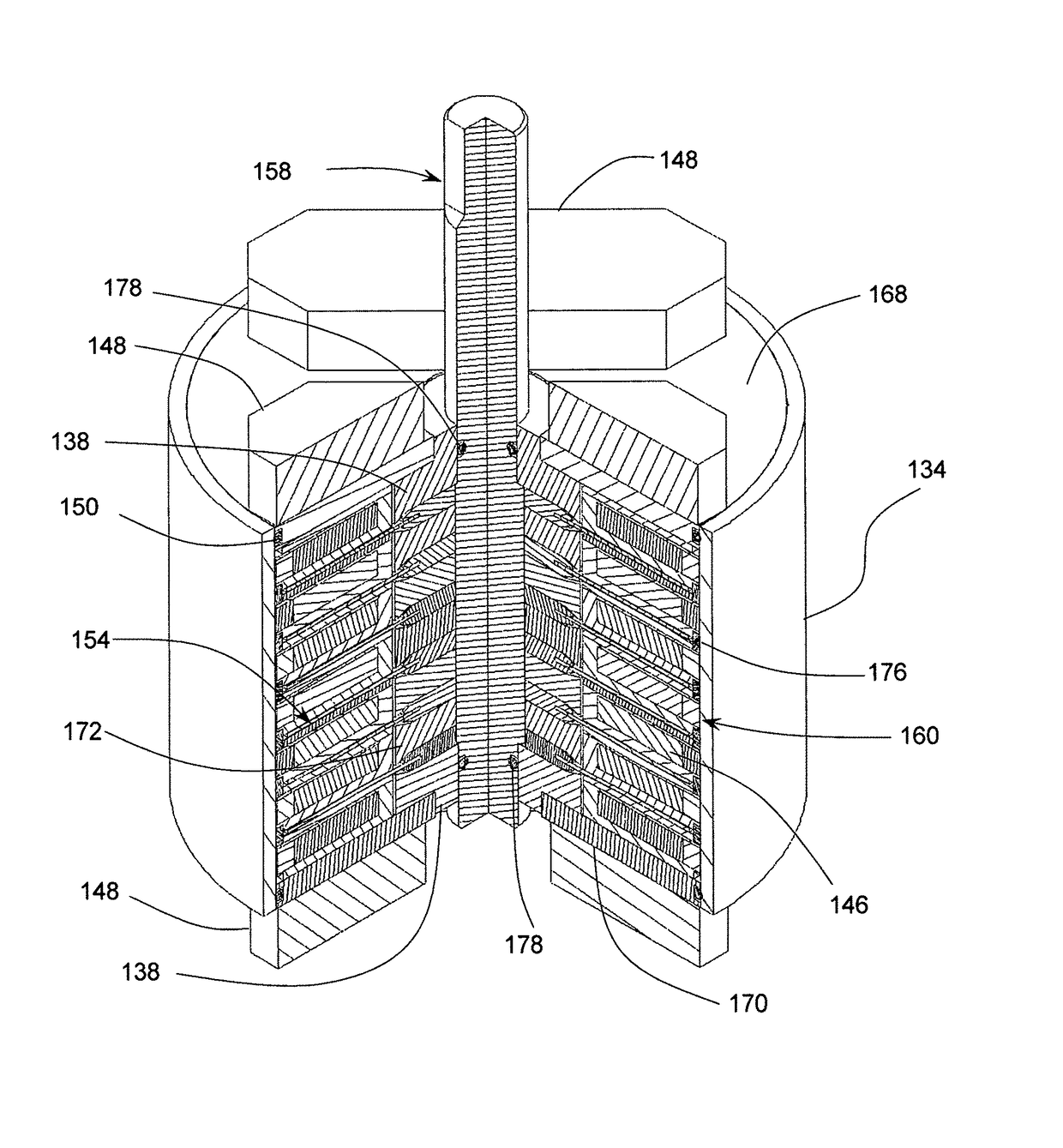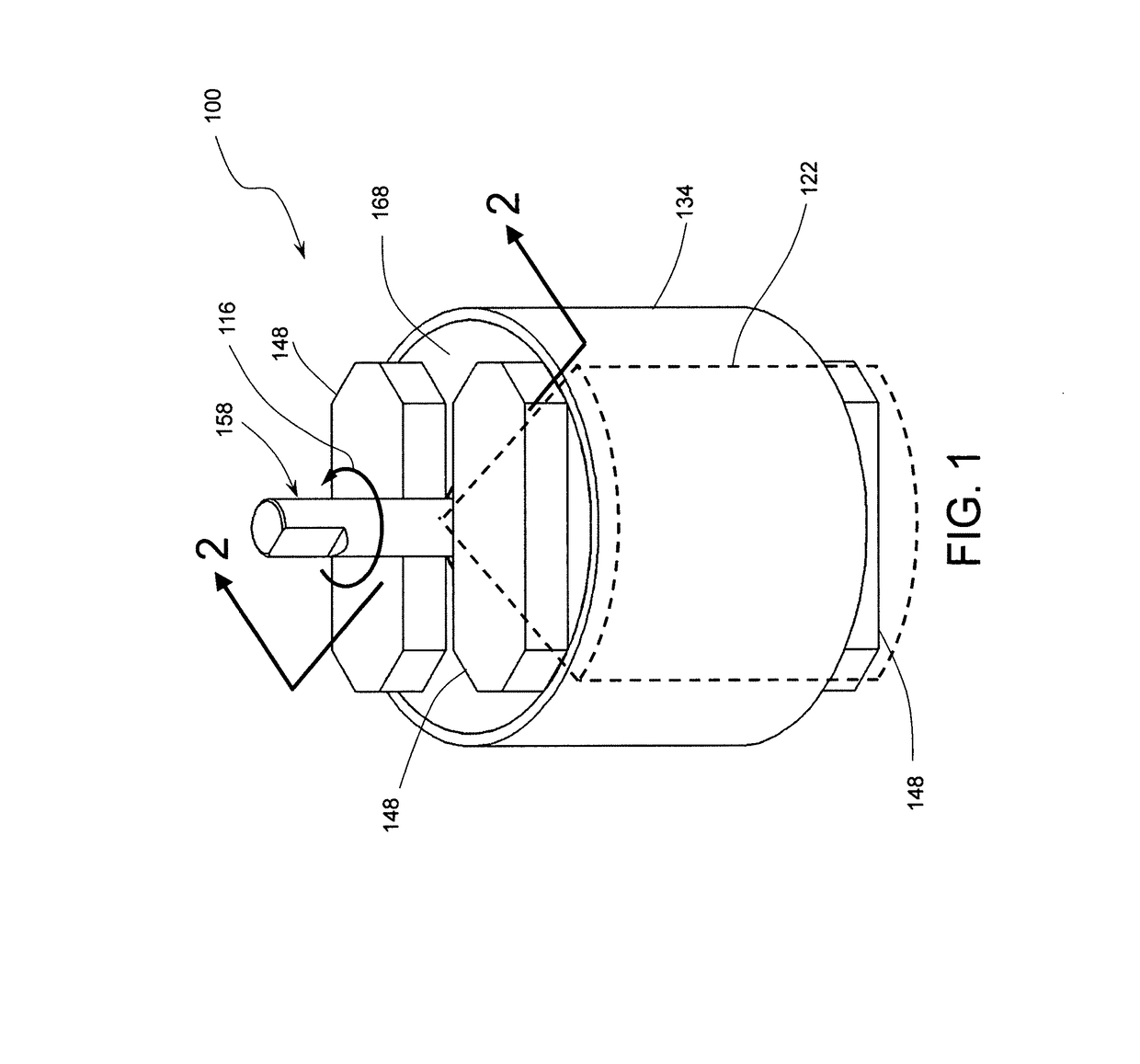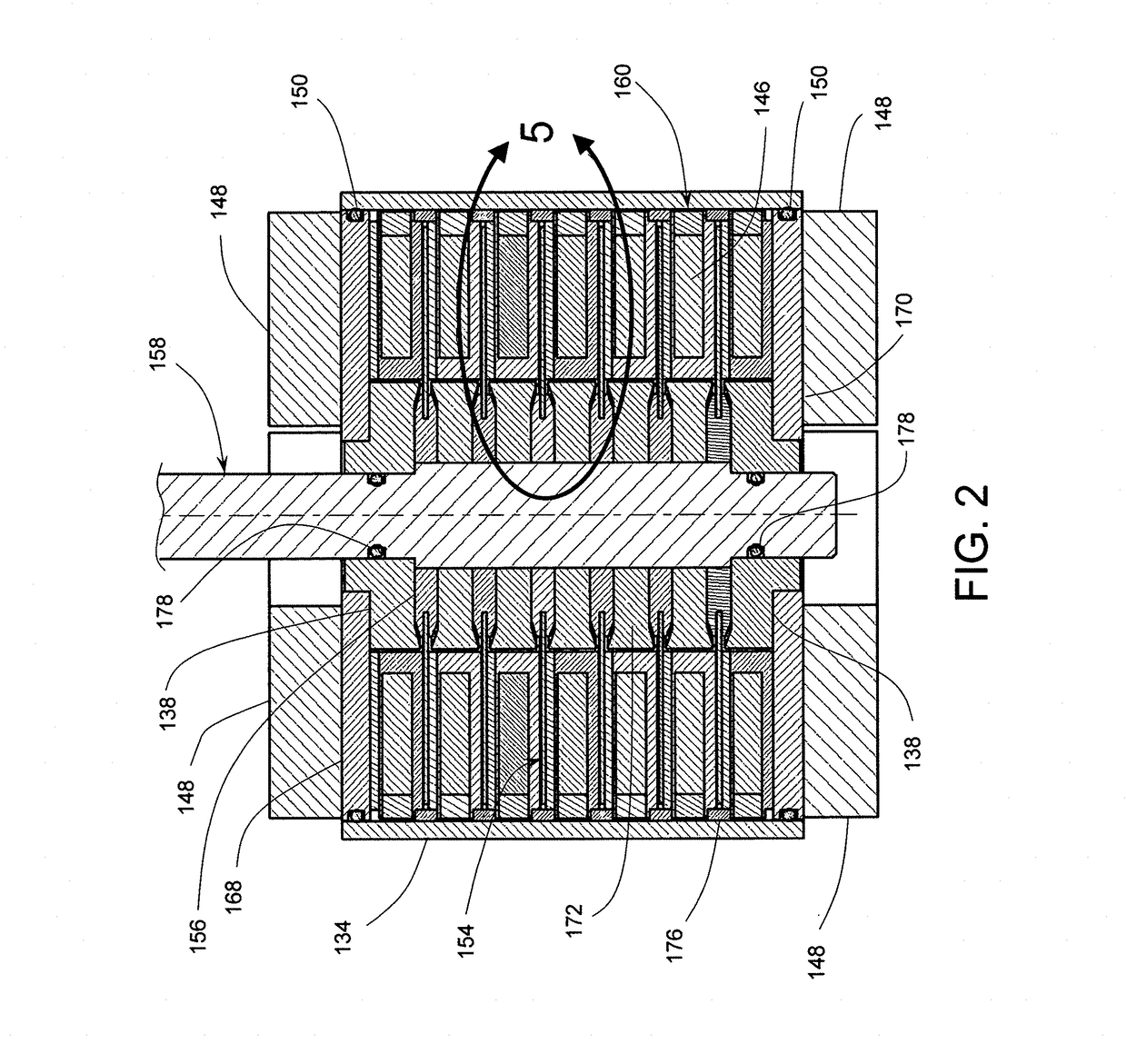Magnetocaloric Refrigerator
a magnetocaloric refrigerator and refrigerator technology, applied in refrigeration machines, machines using electric/magnetic effects, sustainable buildings, etc., can solve the problems of high generation cost, frequent use of inefficient and polluting power generation equipment, peak load due to air conditioning, etc., and achieve low mechanical vibration and compact size
- Summary
- Abstract
- Description
- Claims
- Application Information
AI Technical Summary
Benefits of technology
Problems solved by technology
Method used
Image
Examples
Embodiment Construction
[0086]Selected embodiments of the present invention will now be explained with reference to drawings. In the drawings, identical components are provided with identical reference symbols in one or more of the figures. It will be apparent to those skilled in the art from this disclosure that the following descriptions of the embodiments of the present invention are merely exemplary in nature and are in no way intended to limit the invention, its application, or uses.
[0087]Referring now to FIGS. 1, 2, 3, and 4, there is shown an MCR apparatus 100 in accordance with one preferred embodiment of the present invention. Note that the isometric view of FIG. 3 having a partial section is formed from the view in FIG. 1 by removing the quadrant-like volume identified in FIG. 1 by a broken line 122. The MCR apparatus 100 has six (6) stages and it comprises six (6) MCE disks 154, seven (7) heat commutators 160, five (5) spacer disks 172, six (6) spacer rings 176, four (4) magnetic flux returns 14...
PUM
 Login to View More
Login to View More Abstract
Description
Claims
Application Information
 Login to View More
Login to View More - R&D
- Intellectual Property
- Life Sciences
- Materials
- Tech Scout
- Unparalleled Data Quality
- Higher Quality Content
- 60% Fewer Hallucinations
Browse by: Latest US Patents, China's latest patents, Technical Efficacy Thesaurus, Application Domain, Technology Topic, Popular Technical Reports.
© 2025 PatSnap. All rights reserved.Legal|Privacy policy|Modern Slavery Act Transparency Statement|Sitemap|About US| Contact US: help@patsnap.com



